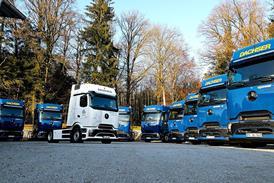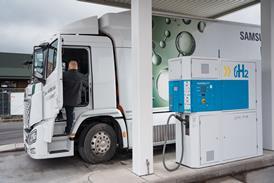Mitsubishi Fuso Truck and Bus Corporation (MFTBC) has partnered with Connexx Systems to repurpose used FUSO eCanter batteries for energy storage systems.
In February 2025, end-of-life eCanter batteries will be put to use to power an EV charger installed at the city hall of Muko City, Kyoto Prefecture, Japan. This system will charge the city’s official EV cars as a proof of concept. The setup will use Connexx Systems’ EnePOND EV charger.
Later this year, an additional charger and energy storage solution will be installed at MFTBC’s Kawasaki plant where it will charge EVs including electric trucks. Following the successful implementation of these systems, MFTBC and Connexx Systems are planning a wider rollout of the solution in 2026.
An energy storage system is designed to take pressure off the grid by having power ready to be used. This means fast charging can be delivered even at peak grid consumption times since the energy is stored independently of the grid. Another benefit of using a system like this is that even during powercuts vehicles will be able to charge.
While this solution offers a second-life purpose for eCanter batteries, MFTBC is already planning the battery’s next role after being used for energy storage. The goal is to create a circular economy to recover anode, cathode and electrolyte materials from used batteries.
In partnership with True 2 Materials, MFTBC is working on pilot programmes for recycling end-of-life batteries. The ultimate goal is to maximise the value of the battery by introducing recycled raw materials back into the supply chain, reducing the cost of EVs and decreasing the environmental impact of battery creation.
MFTBC and Connexx Systems attended the ZET-summit, a zero emission technology conference in Japan, to demonstrate the second-life battery concept. The company’s battery lifecycle and recycling initiatives are part of its overall goal to achieve carbon neutrality by 2050.










